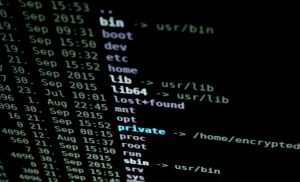“Gee, I really wish my boss and colleagues would just ignore all the good work I’ve been doing,” said no one ever.
We know people like to be recognized for a job well done. And most times, a simple thank-you will suffice. In fact, we humans depend on it. “Gratitude is the high-octane fuel without which we’d be in relational ruin . . . organizations, families, societies would crumble,” says Robert Emmons, professor of psychology at the University of California, Davis.
Research shows that practicing gratitude has an immediate effect on our nervous system by lowering the stress hormone cortisol and boosting the good hormones, serotonin and dopamine. What manager wouldn’t want their team to be reaping the benefits to the area of the brain responsible for learning and decision-making?
The business benefits of gratitude
One way to get everyone at a company to start showing more gratitude is to implement an employee recognition program. There’s even a business case to be made for it.
Frequent thank-yous and recognition are even more motivating than money, according to one study, and 80% of those polled by Glassdoor said they’d work harder for a boss who demonstrated their appreciation.
Gratitude as a management tool
It’s important to understand that gratitude and recognition don’t always look like saying thanks in a public way in a meeting or in a one-on-one—the delivery matters. Too much “drive-by” recognition could have the opposite effect, according to Vidyard CEO Michael Litt. “They start to come off like cheap motivational techniques,” he says. “On the flip side, they also run the risk of conditioning teams to expect constant positive reinforcement for meeting the basic requirements of their jobs.”
To make it meaningful, Art Markman wrote, “Giving someone the opportunity to participate in a valued project or to meet with a key client can be a reward, but only if it is seen as a signal of potential career advancement in the future. People like to get evidence that they are being groomed for future roles. So, the chance to attend an important meeting has a benefit only if people believe that they are in contention for a step up the ladder.”
How to say thanks
Despite the evidence, leaders often underestimate the value of recognition and some of the natural ways their role can offer opportunities to do it, especially when they’re impromptu. As Shanna Hocking observed, “Remember, this ‘distraction’ is your job as a leader of people.” Hocking advised making time to proactively engage in an informal way and offered some questions to ask them:
There are unspoken ways to recognize employees, too. “The most powerful form of praise and recognition comes through trust,” said Simone Ahuja of Blood Orange. “When leaders have the confidence in their teams (and themselves) to trust that they will do the right thing, productivity and engagement increase dramatically.”
Engagement is not a thing to be taken casually, as more employees succumb to the Great Gloom. Gallup data from 1.8 million employees revealed that businesses with more engaged workforces actually do better overall: “Business units that score in the top half of employee engagement have double the odds of success of those in the bottom half.”
Leaders need to remember that ensuring that worker protections are in place can also be a way to recognize and honor employees’ dedication. As Matt Helmer observed: “Many workers have no time off or will be called in with little notice.” Time off to spend with loved ones, wrote Helmer, may be the greatest way to say thanks and reward workers this holiday season.
(3)








